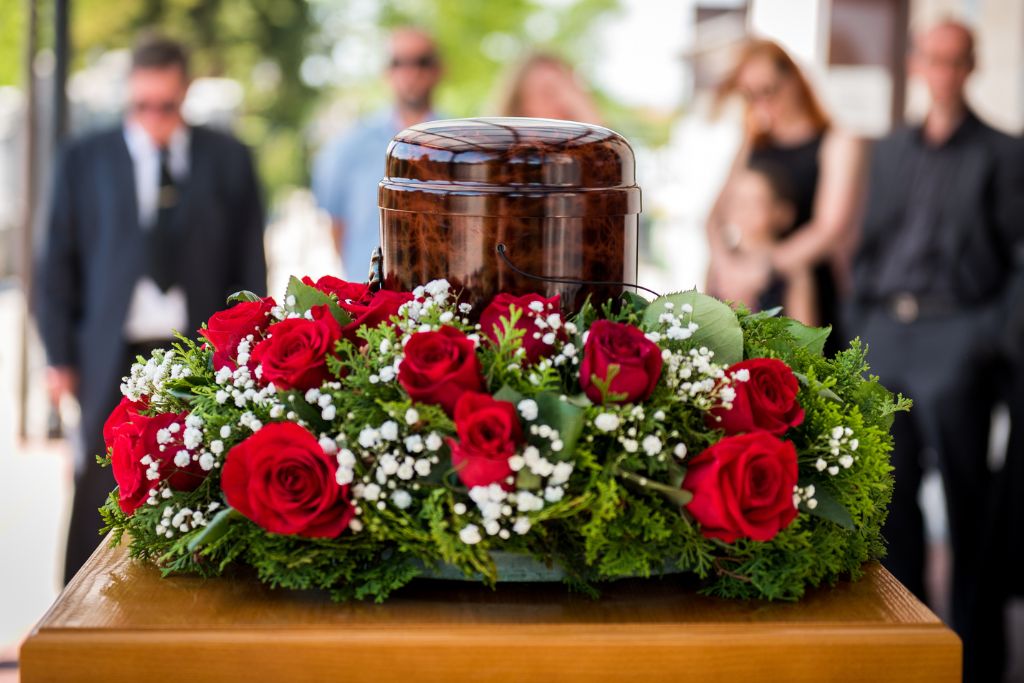Spopielenie zwłok nie wzbudza już takich kontrowersji jak kilkanaście lat temu. Coraz więcej osób, szczególnie w dużych miastach decyduje się na tę formę pochówku. Jednak niektórzy zdecydowanie preferują tradycyjny pochówek.
Spopielenie zwłok nie wzbudza już takich kontrowersji jak kilkanaście lat temu. Coraz więcej osób, szczególnie w dużych miastach decyduje się na tę formę pochówku. Jednak niektórzy zdecydowanie preferują tradycyjny pochówek.

The decision on the form of burial is a deeply personal matter, and it is difficult to provide any definitive advice on the subject. The choice may be based on a written declaration of the deceased’s last wishes or on the will and knowledge of the closest relatives organizing the funeral.
The legal regulations concerning cremation and traditional burial are outlined in the Act of January 31, 1959, on Cemeteries and Burial of the Deceased. To carry out a cremation, written permission from a family member is required, or a last will document in which the deceased specifies burial arrangements. In cases where remains are cremated after exhumation, an additional permit from the district sanitary and epidemiological station is required.
The Catholic Church has allowed cremation since 1963 and, since 2016, has accepted funeral Masses in the presence of an urn with ashes. However, the Church does not permit the storage of an urn in any location other than a consecrated cemetery, nor the creation of keepsakes or jewelry from the ashes. Scattering ashes over water or in the forest is also not allowed — both by the Church and under Polish law.
Despite the Church’s evolving stance on cremation, many deeply religious individuals still prefer traditional burial.
Farewells at the funeral home, as well as the funeral Mass, can take place in the presence of either a coffin or an urn with ashes.
Pros:
– Lower burial plot costs — the urn can be placed in a columbarium or an existing family grave.
– Due to limited cemetery space, especially in large urban areas, cremation improves accessibility to memorial spaces for relatives.
– More environmentally friendly — it doesn’t pollute groundwater and doesn’t require a coffin made from expensive wood.
– Easier formal process for transporting ashes compared to transporting a body in a coffin, especially if death occurred far from the place of burial.
Cremation performed as part of Bongo’s comprehensive funeral services is carried out with the highest respect for the dignity of the deceased, just like traditional burial. In the event of death abroad, cremation can be considered either in the country where death occurred or after transporting the body to Poland. Bongo cooperates with crematoria in Łódź and Kraków.
Cons:
– Historical and religious associations may evoke negative feelings.
– Some may find it emotionally harder to grieve or feel cremation doesn’t allow for a “proper” farewell with the deceased.
– It may cause greater psychological burden for some, due to the perceived lack of due reverence.
Pros:
– Aligns with customs, especially among the older generation.
– For some, it facilitates the grieving process and maintaining memory of the deceased.
Cons:
– Higher burial plot costs.
– Less environmentally friendly, especially if the body is embalmed and buried in a lacquered coffin with plastic components.
If you have doubts or questions regarding the choice of burial method, it is best to contact Bongo International Funeral Services, where a representative will provide detailed information.
Transport by Country
An independent expert in the funeral industry, author of the blog Celebruj Wspomnienia (“Celebrate Memories”), and editor-in-chief of THANOS magazine — the official publication issued by the World Organization of Funeral Operatives FIAT-IFTA. She has written nearly one hundred articles and conducted dozens of interviews on topics related to trends, marketing, and the sale of funeral services. Katarzyna constantly follows developments in the industry, discovering innovations that transform the way funeral services are perceived. Her unique approach — combining insight, courage, and respect — attracts the attention of both professionals and those outside the field. She collaborates with market leaders, including Grupa KLEPSYDRA S.A.

Repatriating a deceased person to Poland is a process that for many families becomes a necessity in the event of the sudden death of a loved one abroad. Although this procedure may seem complicated, its duration depends on several key factors: the course of official formalities, the legal requirements of a given country, and the logistics of the transport itself. It is worth knowing how the entire process works.

More and more families, guided by the wishes of the Deceased or by their own convictions, are choosing farewells without religious symbolism. This form of ceremony allows one to focus on the life story, values, and relationships that shaped the everyday life of their loved one.

The death of a loved one is an experience that always comes too soon and requires that, within a short period of time, numerous formalities be completed. This guide was created to help you navigate this process step by step — from documents and organizational decisions to the logistics of the ceremony. With this guidance, preparing for the funeral can proceed more calmly, with the reassurance that every detail has been handled with respect and care.